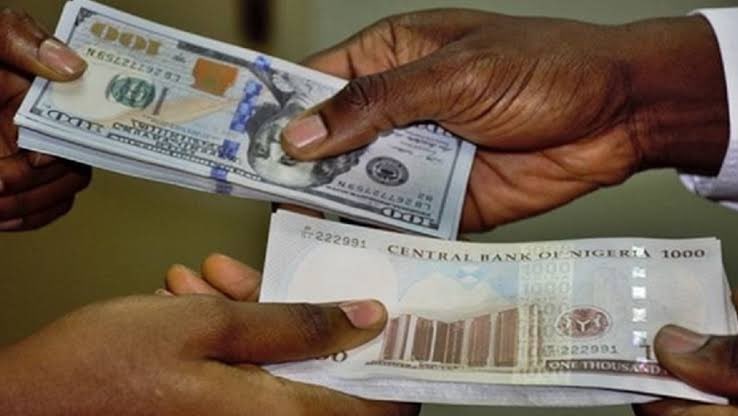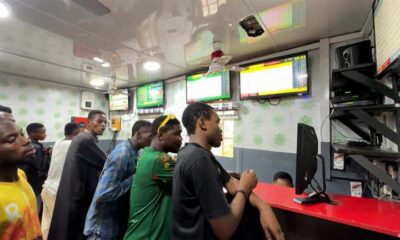Business
Naira to Dollar Exchange Rate Today, October 20, 2025 — Official and Black Market Rates
The naira traded mixed on Monday, October 20, 2025, as the official exchange rate held steady around ₦1,467/$1.

- The naira traded mixed on Monday, October 20, 2025, as the official exchange rate held steady around ₦1,467/$1, while the parallel (black) market weakened to about ₦1,500/$1.
The naira traded mixed on Monday as the official market rate held relatively steady while the parallel (black) market remained notably weaker, reflecting tight dollar supply and sustained demand pressure from importers and retail dealers.
Key Exchange Rates (October 20, 2025)
- Official NFEM / CBN rate (volume-weighted average): ₦1,467.43 per US$1
- Interbank/Spot market quotes: ₦1,468 – ₦1,475 per US$1
- Parallel / Black-market (retail dealers): Buy ₦1,480 — Sell ₦1,500 per US$1

Market Overview
The Central Bank of Nigeria (CBN)’s Daily Nigerian Foreign Exchange Market (NFEM) rate — the official reference for the day — remained stable around the mid-₦1,400s on Monday. Market data indicated that the spot dollar traded between ₦1,467 and ₦1,475 across interbank feeds, depending on timing and liquidity.
However, at the parallel market, street dealers in Lagos and Abuja were quoting the naira weaker — buying dollars at about ₦1,480 and selling as high as ₦1,500 per US$1 — extending the persistent premium over the official window.

Why the Gap Persists
Analysts say the spread between the official and parallel markets continues due to tight dollar supply and unrelenting demand from businesses and individuals.
Recent monetary policy adjustments — including a September reduction in the Monetary Policy Rate (MPR) and continued FX market interventions — have helped moderate volatility, but structural foreign exchange shortages remain a key driver of the parallel market pressure.

What It Means for Nigerians
- Consumers: Prices of imported goods and foreign services may continue rising as retailers adjust for the weaker parallel market rate.
- Businesses: Companies relying on imported raw materials or FX access may face delays or higher procurement costs if forced to buy from unofficial channels.
- Remittance Receivers: Families receiving foreign remittances could earn more naira by exchanging in the parallel market — though official channels remain safer and more traceable.






















